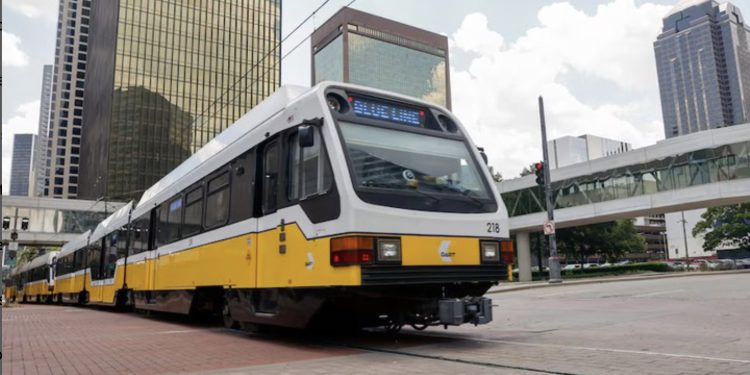DALLAS — In a unanimous decision, the Dallas Area Rapid Transit (DART) Board of Directors has approved a groundbreaking framework that will allow the agency to contribute a portion of its sales tax revenue to Tax Increment Reinvestment Zones (TIRZs) created by its member cities. The move is aimed at revitalizing neighborhoods, stimulating transit-oriented development, and expanding economic growth throughout the DART service area.
The newly adopted interlocal agreement (ILA) framework was crafted in collaboration with DART’s member cities. It allows DART to invest in these municipal TIRZs—also known as TIF (Tax Increment Financing) districts—under specific terms that align with the agency’s mission to enhance mobility and spur development around transit corridors.
“This framework provides a consistent, equitable approach that allows DART to support the economic development priorities of our member cities while preserving our financial integrity and service commitments,” said Nadine S. Lee, DART President & CEO. “It reflects our belief in being a collaborative partner in shaping communities that are both transit-friendly and economically vibrant.”
What This Means for Riders
While this new agreement focuses on long-term economic growth, some riders are already noticing changes in their DART experience—namely, fare increases. Standard local fares have recently risen, with a single ride now costing $3.00, up from the previous $2.50. A day pass is now $7.00, and monthly passes are priced at $96.00.
The fare adjustment is part of a broader financial strategy to maintain service levels, invest in infrastructure, and support contributions to local economic development through TIRZs. While fare hikes are never welcomed news, DART officials emphasized the importance of balancing fare revenue with regional investment goals.
How Riders Can Save
Despite the increase, riders can still find ways to reduce their costs:
-
GoPass App Discounts: Riders using DART’s GoPass mobile app can access promotional deals, real-time updates, and even occasional fare discounts.
-
Reduced Fares: Seniors, students, individuals with disabilities, and Medicare cardholders are eligible for reduced fares through DART’s Reduced Rider ID program.
-
Employer Programs: Many large employers in the Dallas-Fort Worth area partner with DART to offer subsidized passes for commuting employees.
-
Buy Passes in Bulk: Frequent riders may save more over time by purchasing monthly passes rather than single fares.
TIRZ Benefits and Long-Term Impact
City leaders praised DART’s new framework for its potential to drive investment and modernize infrastructure. “Their participation in our TIRZ will empower us to be more creative when competing for new developments and attracting new business to our community,” said Don Magner, City Manager of Richardson. “We look forward to partnering with DART to strengthen and grow our economy.”
For riders, this means better stations, safer streets, and future development that prioritizes accessibility to transit. As revitalization projects come to life, DART users could find themselves with new retail, housing, and work opportunities built around the transit network they already use.
Bottom Line
DART’s new ILA framework marks a significant step toward blending public transit and economic strategy. While some riders may feel the pinch of increased fares in the short term, the long-term vision paints a picture of more connected, vibrant, and economically resilient communities. For those who rely on DART daily, keeping an eye on promotions, reduced fare programs, and employer partnerships can help ease the transition.






